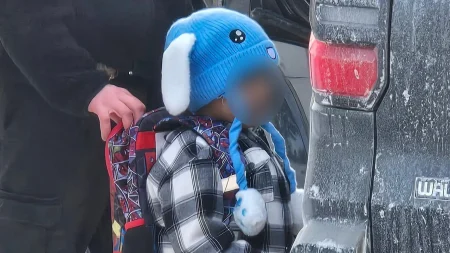Kentucky State Representative Kim Banta is spearheading a legislative effort to hold parents accountable for gun-related crimes committed by their juvenile children. This proposed legislation, modeled after existing laws addressing property damage and motor vehicle accidents caused by minors, aims to impute the “negligence or willful misconduct” of a minor onto their parents or guardians in cases where a firearm is discharged, resulting in injury to another person. This means parents could be held civilly liable for damages resulting from such incidents. The bill explicitly states that it is not intended to restrict gun sales or implement gun control measures. Instead, its primary objective is to heighten parental awareness and responsibility regarding their children’s access to and use of firearms. Banta argues that this approach aligns with existing laws that hold parents accountable for their children’s actions in other contexts, such as driving or property damage.
The proposed legislation outlines several factors that would be considered in determining parental liability. These include whether the parent or guardian permitted the child to possess the firearm, whether they were aware of any prior gun law violations by the child, and whether they had reason to believe the minor exhibited a propensity for violence. This multifaceted approach aims to assess the level of parental negligence or willful misconduct that contributed to the incident. Banta cited a recent case involving a dispute between teenagers that escalated into a shooting as an example of the need for such legislation. She emphasized the developmental differences between adolescents and adults, arguing that 15-year-olds lack the mature decision-making capabilities of adults, particularly in moments of anger or stress, making unsupervised access to firearms especially dangerous.
This bill specifically exempts foster parents from liability, recognizing the unique circumstances of their guardianship. The legislation is slated for presentation in January, with Banta expressing optimism about its chances of passing both legislative chambers, given the Republican majority in both the House and Senate. If approved by the legislature, the bill would then proceed to Governor Andrew Beshear, a Democrat, for his signature. The governor’s stance on the bill remains unclear pending a response to inquiries.
This proposed legislation has the potential to significantly impact parental responsibility in Kentucky. By holding parents civilly liable for gun-related crimes committed by their children, the bill seeks to create a stronger incentive for parents to ensure safe gun storage practices, monitor their children’s access to firearms, and address any underlying behavioral issues that might contribute to gun violence. While supporters argue this approach promotes responsible gun ownership and enhances public safety, critics may raise concerns about the fairness of holding parents accountable for the actions of their children, particularly in cases where the parent took reasonable precautions. The debate surrounding this legislation is likely to involve complex discussions about parental rights, gun control, and the best ways to prevent youth gun violence.
The proposed legislation reflects a growing national concern about the accessibility of firearms to minors and the devastating consequences of youth gun violence. By focusing on parental accountability, the bill seeks to address the issue upstream, aiming to prevent incidents before they occur rather than solely reacting to the aftermath. The bill’s success or failure will depend on its ability to navigate the legislative process and garner the necessary support from lawmakers on both sides of the aisle. The outcome of this legislative effort could serve as a model for other states grappling with similar challenges.
Ultimately, the central question is whether holding parents civilly liable for their children’s gun-related crimes will effectively deter such incidents and contribute to a safer environment for Kentucky’s youth. The debate surrounding this legislation promises to be a significant development in the ongoing national conversation about gun safety and the role of parents in preventing gun violence. The outcome in Kentucky may influence similar legislative efforts in other states and contribute to a broader understanding of the complexities surrounding youth access to firearms.















